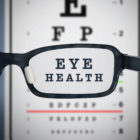Age-related macular degeneration (AMD) is not rare. According to the National Institutes of Health, it is the leading cause of vision loss for people over 60. The macula of the eye is the part that lets you see the central portion of what or who you are looking at. Imagine looking at someone and not being able to see their face. That would be typical of macular degeneration. That makes it very hard to read and to drive.
About 2 million people have the advanced form of the disease which is also called wet AMD. An early symptom is that straight lines begin to look wavy and the TV images get blurry. It’s caused when abnormal blood vessels grow under the retina, the back part of the eye that interprets images. Sometimes these blood vessels bleed and the leaking blood and fluid seeps under the macula, a small area located near the center of the retinal that allows us to see what’s in the middle of our vision.
Twenty years ago, the National Eye Institute did a national study and showed that the anti-oxidant vitamins C, E and beta-carotene and the minerals zinc and copper helped slow the disease by 25% and lowered a persons risk by getting the disease by 19%.
Certain foods can also help you. Kale, mustard greens, collard greens, and raw or cooked spinach help reduce your risk. These foods all contain lutein and zeaxanthin, two anti-oxidants from the beta carotene family. Women (and men) who eat more fish, especially salmon, all great sources of omega-3 fatty acids, also had less risk of getting the disease. The omega-3’s in fish are DHA and EPA.
New studies are underway to see if supplements alone can be helpful. Learn more at www.nei.nih.gov/eyeclinic. Get more information on menopause and perimenopause at www.DoctorSeibel.com/menopause.
A study in Science Daily showed that women in menopause who take estrogen have a 48% lower risk of developing advanced stages of macular degeneration, especially if they had take oral contraceptives in the past. Women who have given birth had a 26% lower risk of getting the disease. All of these are conditions with increased exposure to estrogens. Smokers (who typically have lower estrogen levels) are at greater risk for macular degeneration.




